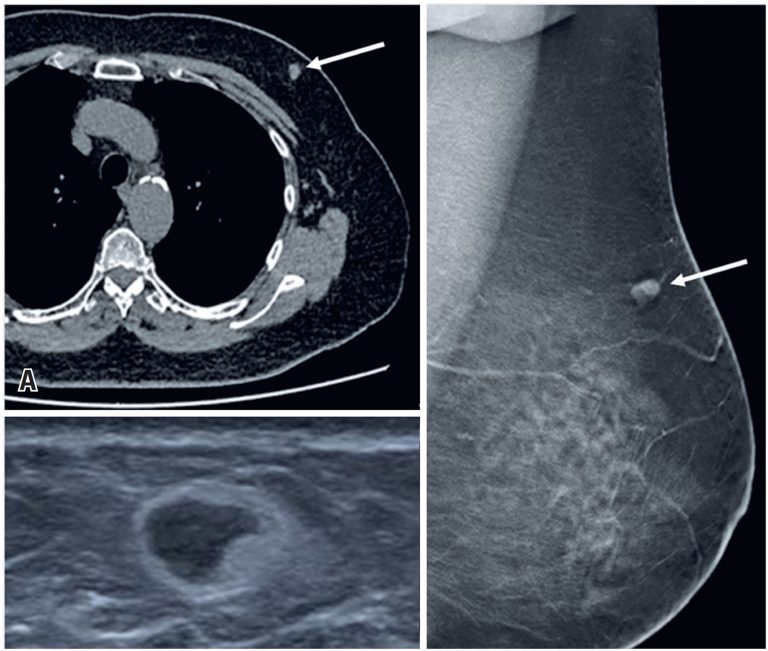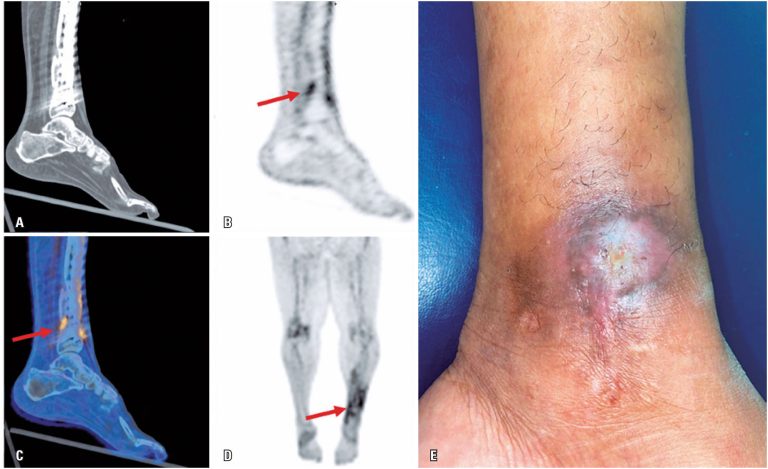05/Jun/2025
Incidentally detected breast lesions: a pictorial essay of malignant and benign findings
DOI: 10.31744/einstein_journal/2025RW0681
ABSTRACT Incidentalomas are lesions incidentally identified in patients undergoing imaging for unrelated reasons. Breast incidentalomas have a high correlation with malignancy, occurring in over 40% of cases. Consequently, their interpretation poses significant challenges for radiologists who must discern the findings that may present a potential risk to the patient. This pictorial review presents different incidental breast lesions revealed through cross-sectional imaging. We further review key concepts related to such incidentalomas.
Keywords: Breast neoplasms; Diagnostic imaging; Incidental findings; Incidentalomas; Positron emission tomography computed tomography; Tomography, x-ray computed
23/Nov/2023
Antimicrobial peptide for bacterial infection imaging: first case reported in Brazil
DOI: 10.31744/einstein_journal/2023RC0621
ABSTRACT Molecular imaging markers can be used to differentiate between infection and aseptic inflammation, determine the severity of infection, and monitor treatment responses. One of these markers is ubiquicidin(29-41) (UBI), a cationic peptide fragment that binds to the bacterial membrane wall and is labeled with gallium-68 (68Ga), a positron emitter radioisotope. The use of UBI in positron emission tomography (PET)/computed tomography (CT) for improved detection of lesions has been receiving considerable attention recently. Herein, we report the first case of […]
Keywords: Antimicrobial peptides; Bacterial infections; Osteomyelitis; Positron emission tomography computed tomography; Radiopharmaceuticals; Staphylococcal infections; Staphylococcus aureus
06/May/2022
Accuracy of 68Ga-PSMA PET-CT and PET-MRI in lymph node staging for localized prostate cancer
DOI: 10.31744/einstein_journal/2022AO6599
ABSTRACT Objective To evaluate the predictive value of positron emission computed tomography or magnetic resonance (PET-CT and PET-MRI) using gallium-68-labeled prostate-specific membrane antigen (68Ga-PSMA) in lymph node involvement in prostate cancer. Methods A retrospective study comprising 91 patients diagnosed with prostate cancer between 2016 to 2020, who underwent 68Ga-PSMA PET-CT or PET-MRI for staging before prostatectomy. The patients were divided into Group 1, with 65 patients with satisfactory pathological lymph node analysis, and Group 2, with 91 patients representing the […]
Keywords: Data accuracy; Gallium; Lymph nodes; Positron emission tomography computed tomography; Prostate-specific antigen; Prostatectomy; Prostatic neoplasms




